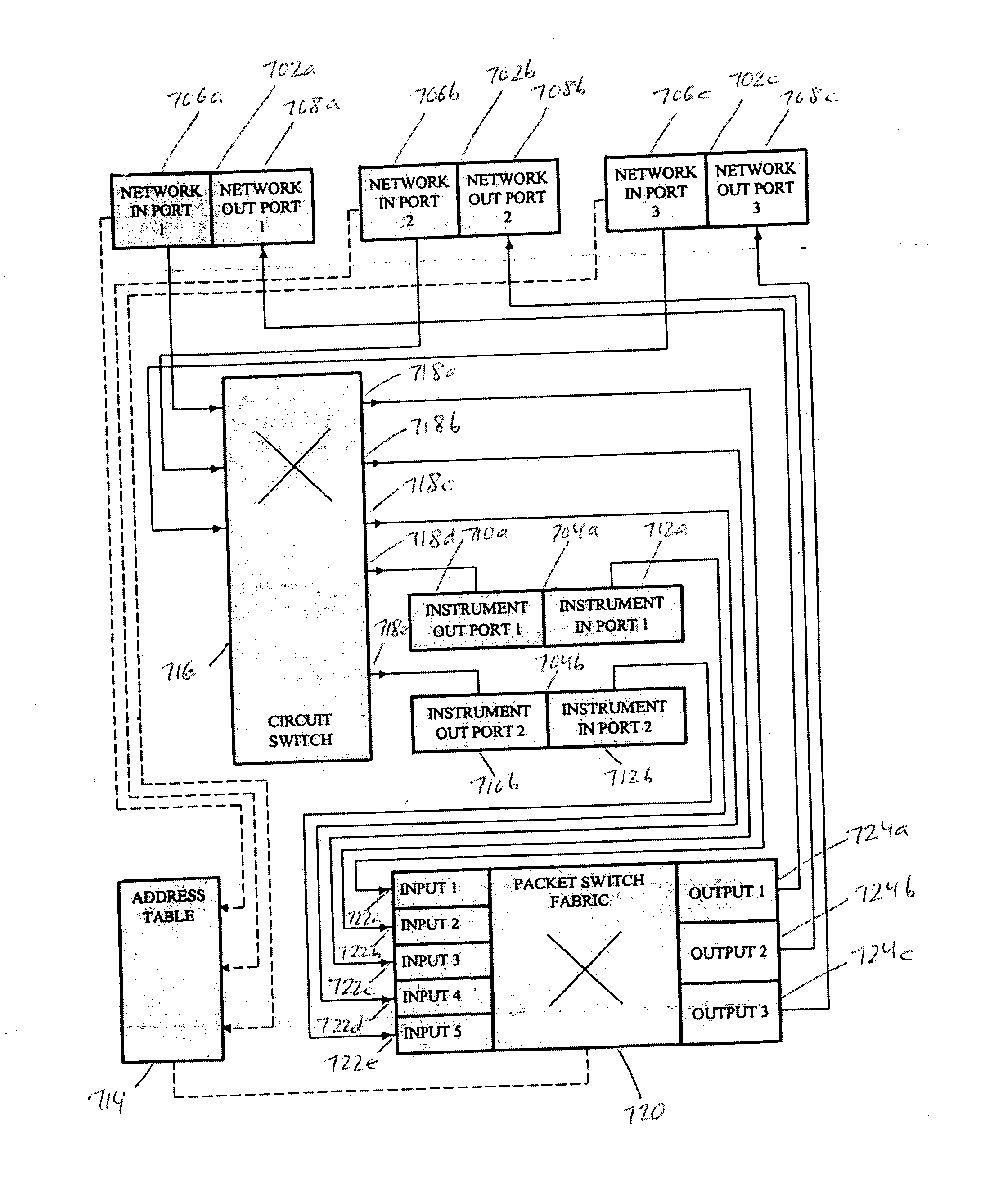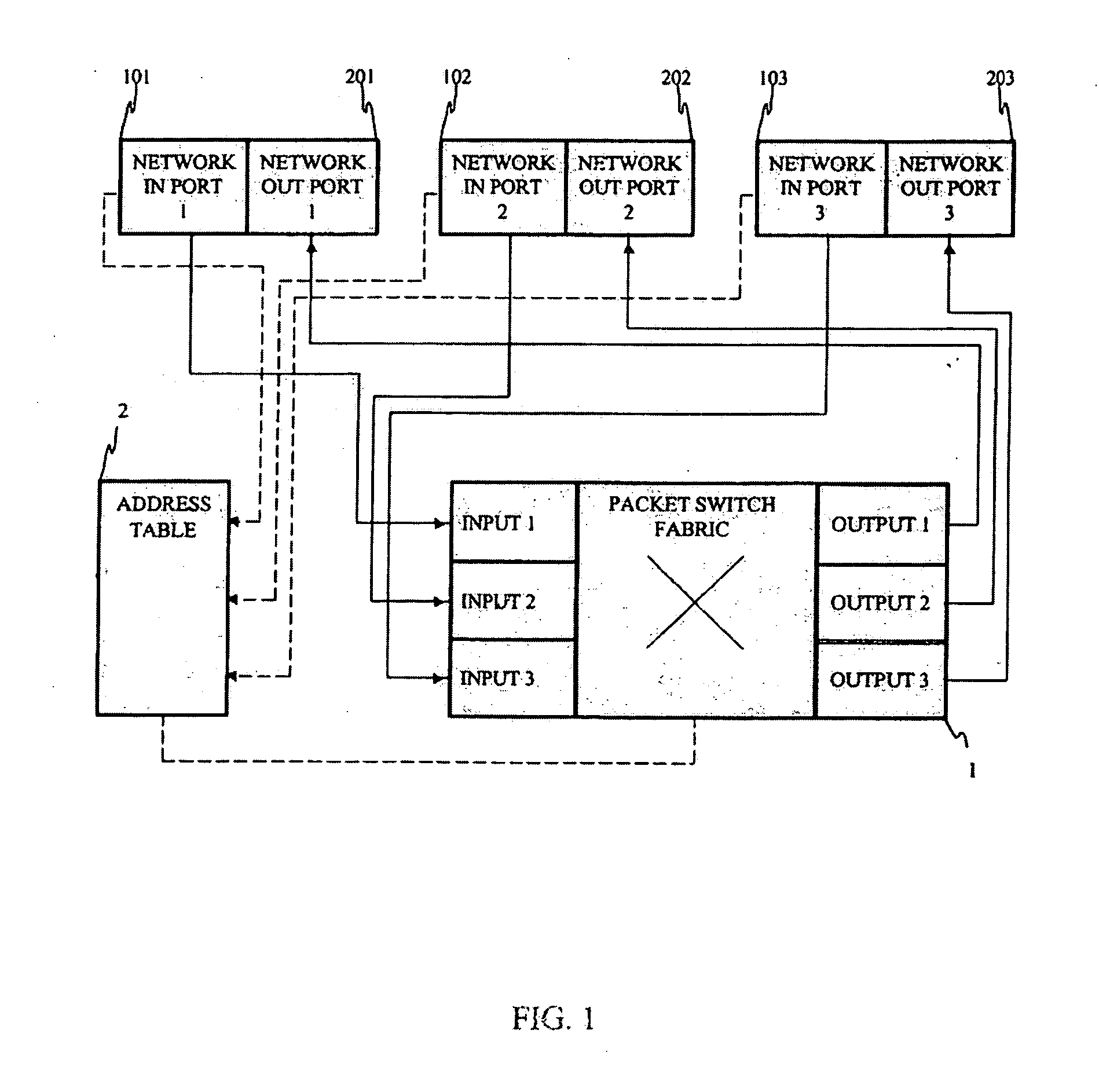Asymmetric packet switch and a method of use
a packet switch and packet switch technology, applied in the field of network switching technology, can solve the problems of low-end switches, limited flexibility, unmanaged packets, etc., and achieve the effects of low cost, not expensive, and saving development costs
- Summary
- Abstract
- Description
- Claims
- Application Information
AI Technical Summary
Benefits of technology
Problems solved by technology
Method used
Image
Examples
first embodiment
ets Within the Network Visibility System
[0114] One-to-One: Ingress packets at one port are provided to another port. Typically, this involves taking ingress packets at a network port and egress out of an instrument port. However, one-to-one can also be used for port-pairing, that is, traffic entering a network port is sent out of another network port, and vice versa, making these two network ports form a port-pair.
[0115] There are three different methods to implement one-to-one.
[0116] The first method involves using a virtual local area network (VLAN) identifier to direct the packets. A VLAN is created with membership having only the two ports involved in this one-to-one connection. For example, suppose the VLAN number for this VLAN is X. The ingress port is set up such that the default VLAN ID is X. With this setting, all packets entering the ingress port will be tagged with a VLAN tag having VLAN number X. All such ingress packets will be flooded out of the second port, hence fo...
second embodiment
[0150] There are two kinds of filters supported in the network monitor: pre-filter and post-filter.
[0151] The packet switch allows packet filtering on a per port basis at the ingress direction.
[0152] A filter can selectively pass or drop an ingress packet based on the filtering criteria. A filtering criterion is set up by the user and can be based on the L2 / L3 / L4 packet content together with a bit mask.
[0153] Pre-filter is a direct application of the ingress filtering capability of the packet switch. Hence pre-filter applies the filter to all ingress packets at a given port, independent of their egress ports. There are situations in the network visibility system where packets entering an ingress port are multicasted out to multiple instrument ports. Each instrument port may want to see a different filtered subset of this packet stream. For example, in FIG. 13, a traffic stream composed of HTTP, TCP and UDP traffic enters network port 1301. The user may set up the network monitor ...
third embodiment
ming and Load Balancing
[0163] In flow-based stream, traffic from one or more network ports is connected to one or more instrument ports. The goal is to have each instrument port receive a different flow of the traffic. A flow can be characterized by a number of criteria, including, but not limited to, a connection between a pair of source and destination IP addresses, a connection between a pair of TCP port numbers within an IP connection, or some other connections specified by certain specific network protocol parameters.
[0164] One method of implementing flow-based stream using a conventional packet switch is to use the link aggregation (trunking) capability of the switch. (Reference: IEEE 802.1ad). In a link aggregation configuration, multiple ports are bundled together into a logical port. Traffic that egresses out of this logical port is distributed to its member ports according to a deterministic hashing algorithm which can be based on the L2, L3 and L4 information of the pack...
PUM
 Login to View More
Login to View More Abstract
Description
Claims
Application Information
 Login to View More
Login to View More - R&D
- Intellectual Property
- Life Sciences
- Materials
- Tech Scout
- Unparalleled Data Quality
- Higher Quality Content
- 60% Fewer Hallucinations
Browse by: Latest US Patents, China's latest patents, Technical Efficacy Thesaurus, Application Domain, Technology Topic, Popular Technical Reports.
© 2025 PatSnap. All rights reserved.Legal|Privacy policy|Modern Slavery Act Transparency Statement|Sitemap|About US| Contact US: help@patsnap.com



